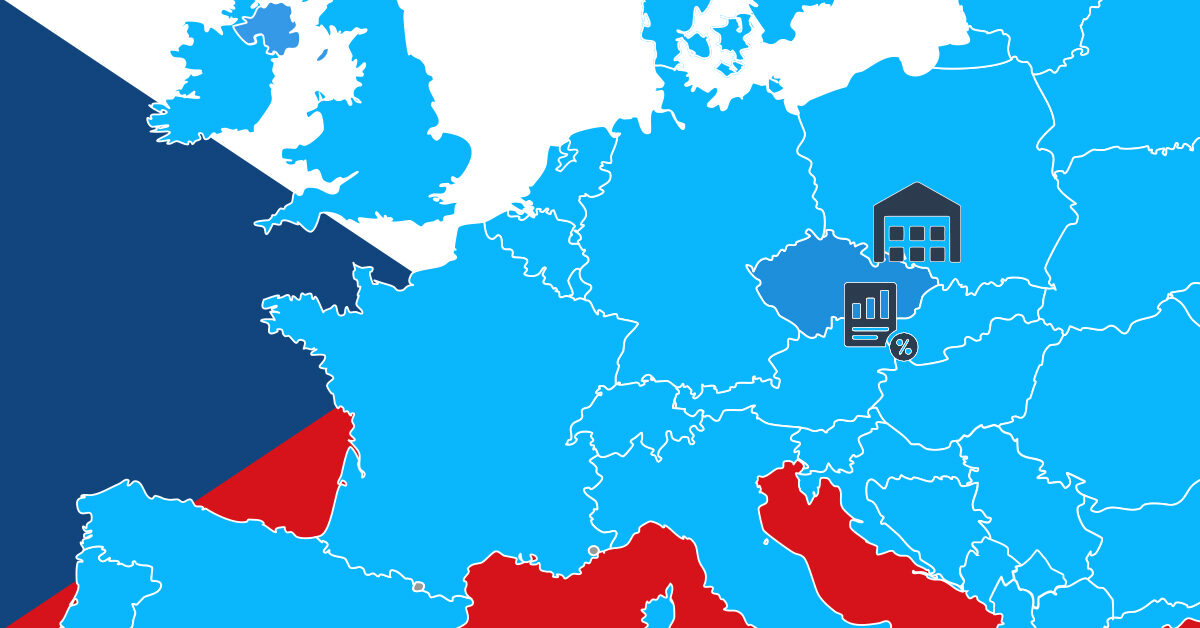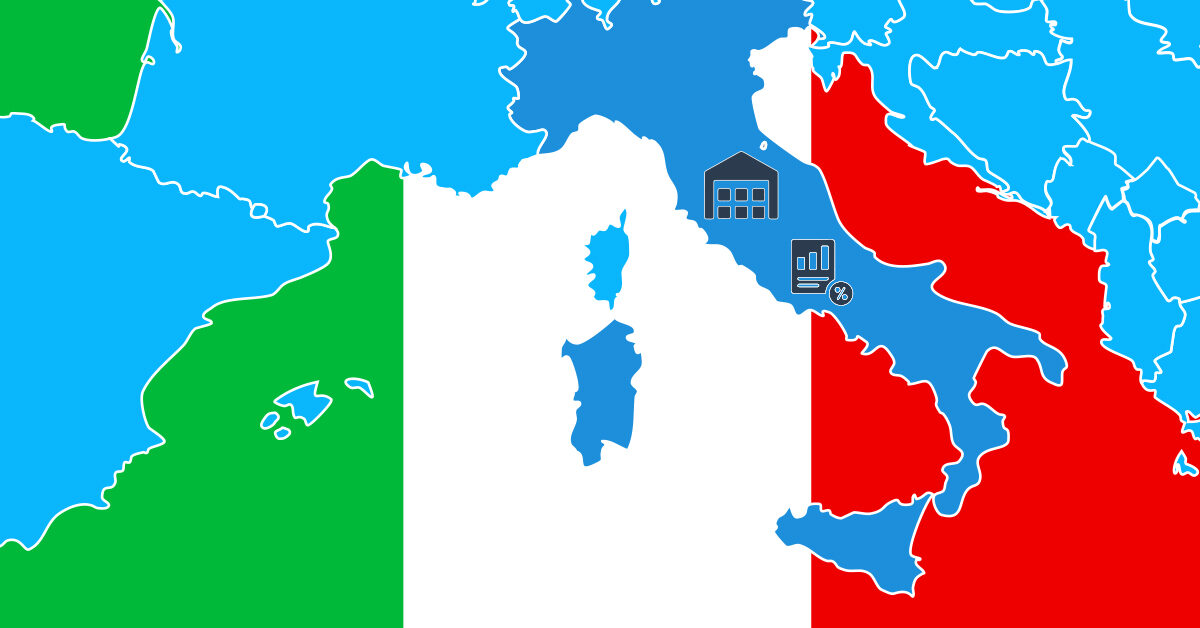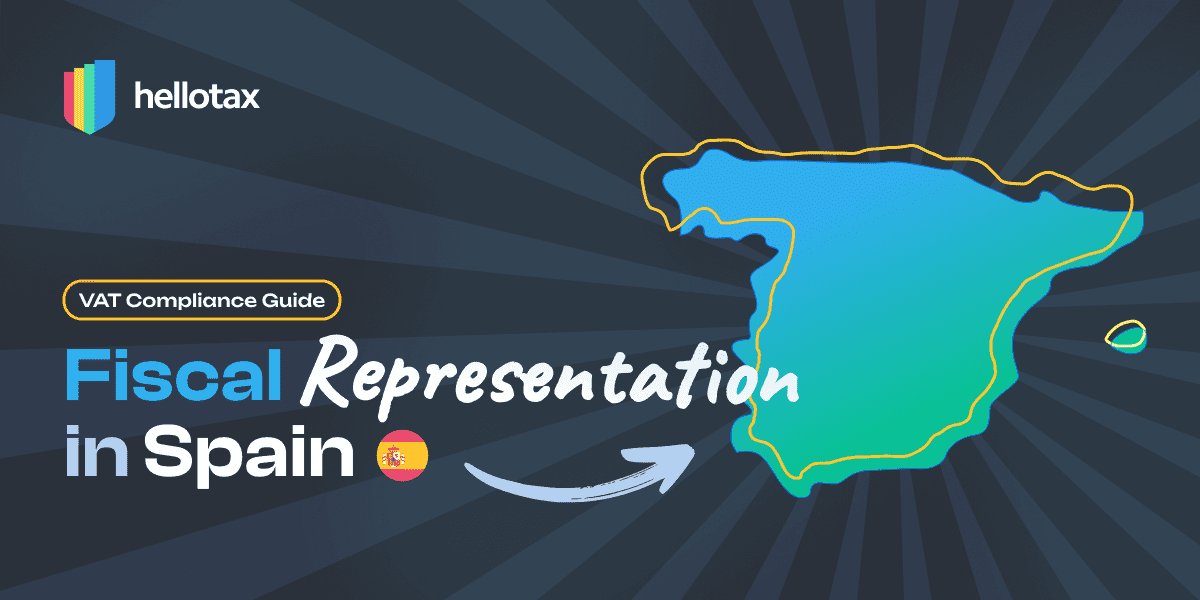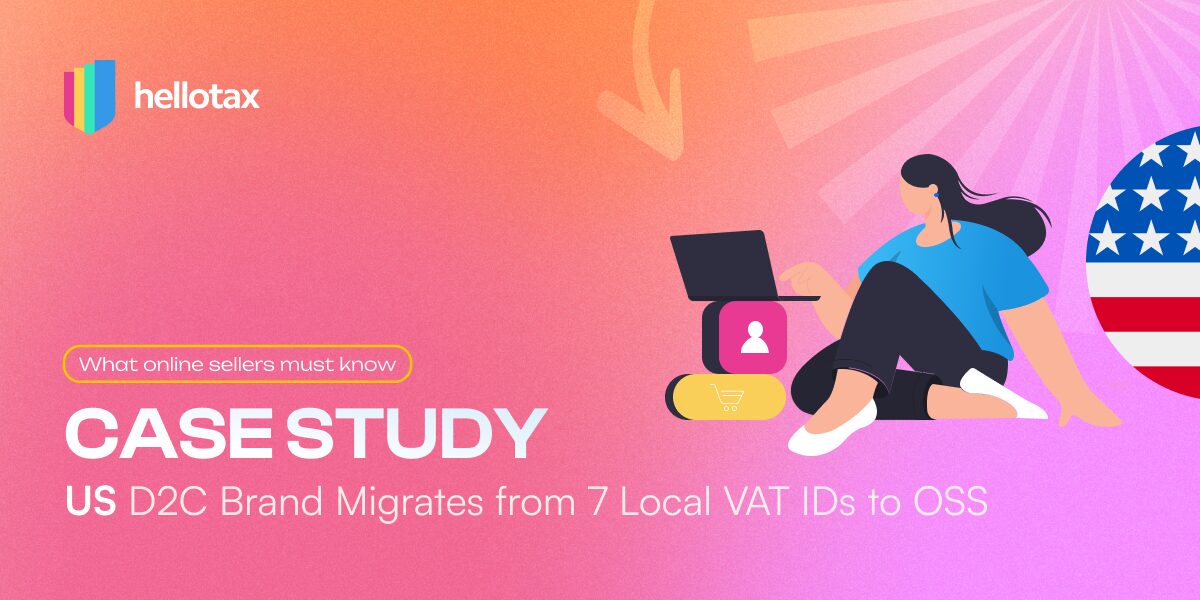Learn how fiscal representation in the Netherlands works in 2025, when it’s required, and how it helps sellers with VAT compliance and Article 23 import VAT.
Antonia Klatt
Last Updated on 2 September 2025
Introduction: Why Fiscal Representation Matters for Online Sellers
The Netherlands is one of Europe’s main entry points for goods, with Rotterdam port and Schiphol airport serving as hubs for e-commerce logistics. For non-EU sellers, navigating Dutch VAT compliance can be complex. That’s where fiscal representation in the Netherlands comes in.
A fiscal representative can simplify VAT compliance, help with import VAT deferment under Article 23, and act as your contact with the Dutch tax authorities. But in 2025, rules have changed — and fiscal representation is not always mandatory. Let’s break it down.
What Is Fiscal Representation in the Netherlands?
A fiscal representative is a licensed service provider who handles a foreign company’s VAT obligations in the Netherlands. Depending on the scope of representation, this may include:
-
Submitting VAT returns.
-
Filing the Intra-Community Transactions (ICP) report.
-
Using the reverse charge mechanism for imports.
-
Assisting with Article 23 import VAT deferment.
-
Communicating with the Dutch tax authority (Belastingdienst).
Who can act as a fiscal representative?
-
Tax consultants and accountants.
-
Lawyers and notaries.
-
Licensed customs agents and forwarding companies.
-
Specialized VAT compliance providers such as hellotax. Important information: please be aware that hellotax cannot provide fiscal representation at the moment in the Netherlands. The service is provided, however, in other EU countries.
You can find more general information on fiscal representation in the EU on our overview page.
When Do You Need Fiscal Representation in the Netherlands?
As of September 2025, the rules are clear:
-
Not automatically required – Non-EU companies do not need a fiscal representative just to register for VAT in the Netherlands. Both EU and non-EU businesses can usually register directly.
-
Required or recommended in specific cases:
-
When applying for an Article 23 VAT deferment license (to avoid paying import VAT upfront).
-
When using bonded warehouses or VAT warehouses for imports.
-
When local authorities require financial security before granting a VAT permit.
-
👉 Even when it’s not legally required, many foreign sellers choose to appoint a fiscal representative for smoother compliance, faster customs clearance, and reduced risk of errors.

Book a free consultation
Our VAT experts are happy to help you. Book a free consultation today!
Types of Fiscal Representation in the Netherlands
The Netherlands recognizes two main types of fiscal representation:
-
General Fiscal Representation (GFR)
-
Covers all VAT obligations of a foreign company.
-
Allows the business to trade freely in the Netherlands, including B2C sales, intra-EU acquisitions, and Article 23 applications.
-
Requires financial guarantees (the representative is liable for VAT debts).
-
-
Limited Fiscal Representation (LFR)
-
Narrower scope, usually arranged by freight forwarders.
-
Applies mainly to import transactions followed by intra-EU deliveries.
-
The representative uses their own VAT number for reporting imports.
-
Not suitable if the foreign company also makes B2C sales in the Netherlands.
-
👉 Choosing between GFR and LFR depends on your business model. Amazon FBA sellers and distance sellers usually benefit more from General Fiscal Representation.
Benefits of Fiscal Representation for Sellers
-
Cash flow optimization – Access to Article 23 VAT deferment (no upfront import VAT at customs).
-
Simplified compliance – No need to manage a Dutch VAT administration alone.
-
Reduced risk – Representative ensures timely submissions and correct reporting.
-
Better communication – Local expert dealing directly with Belastingdienst and customs.
-
EU-wide support – Some providers, like hellotax, offer representation across multiple EU countries.
Appointment of a Fiscal Representative
To appoint a fiscal representative in the Netherlands:
-
Sign a power of attorney with the representative.
-
Representative applies for the relevant license (general or limited) with the Belastingdienst.
-
Representative provides a financial guarantee for VAT liabilities.
-
From then on, the representative files returns, ICP reports, and manages Article 23 applications on your behalf.
Fiscal Representation in Other EU Countries
The Netherlands is not unique — many EU countries also require or allow fiscal representation:
| Country | Mandatory for non-EU sellers? | Notes |
|---|---|---|
| Germany | Yes | Required for non-EU sellers. |
| Netherlands | Yes (only in specific cases) | Needed for Article 23, warehouses. |
| Austria | Yes | Non-EU sellers need representation. |
| Spain | Yes | Applies to many non-EU businesses. |
| Italy | Yes | Mandatory for non-EU sellers. |
| France | Yes | Mandatory for non-EU sellers. |
| Czech Rep. | No | Direct registration is possible. |
How hellotax Can Help
At hellotax, we make VAT compliance in the Netherlands simple:
-
⚡ Apply for Dutch VAT registration and manage filings.
-
📊 Arrange Article 23 VAT deferment licenses for importers. Please be aware that hellotax can only offer fiscal representation in the Netherlands for particular cases. 🔎 Provide real-time tools to monitor sales, thresholds, and VAT compliance across Europe.
👉 Book your free consultation today and let our VAT experts simplify compliance in the Netherlands and across the EU.
Conclusion & Key Takeaway
In 2025, fiscal representation in the Netherlands is not always mandatory, but it is often essential for importers who wish to utilize Article 23 VAT deferment, bonded warehouses, or streamline their VAT compliance.
Key takeaway: Appointing a fiscal representative can save time, improve cash flow, and prevent costly mistakes.
With hellotax, you can rely on expertise in VAT automation and EU-wide compliance support.





